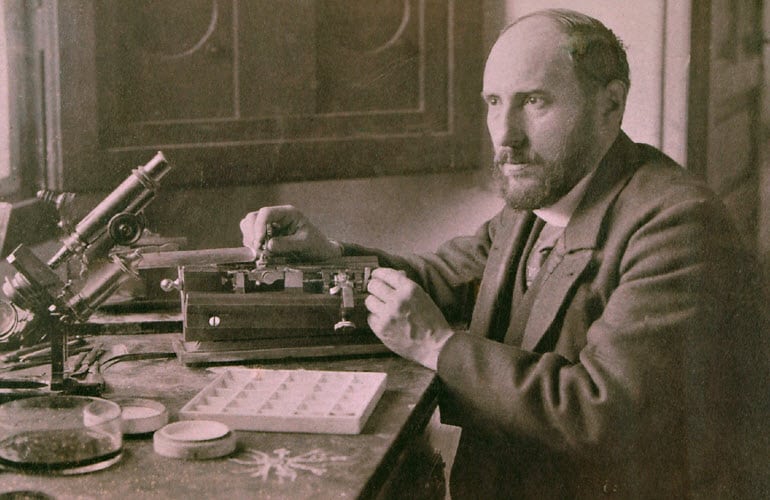Neuroscience Pioneer: Unraveling the Legacy of Santiago Ramón y Cajal

Santiago Ramon y Cajal (1 May 1852 – 17 October 1934) was a Spanish physician and histologist who made significant contributions to neuroscience. He is widely regarded as the founder of modern neuroscience.
Life and Career
He was born on 1 May 1852, in Petilla de Aragon. He received his early education at home from his father, who was a physician. He then attended the Institute of Huesca and excelled in his studies there. Ramón y Cajal went on to study medicine at the University of Zaragoza, where he received his medical degree. He continued his education with postgraduate studies in several European countries, including France, Germany, and Italy, where he studied the latest techniques in histology and microscopy. His education and training in these fields were critical to his later work in neuroscience.
After completing his medical degree, he worked as an army doctor during the Third Carlist War. In 1877, he was appointed as an assistant physician at the Provincial Insane Asylum in Zaragoza. It was during this time that he began to study the microscopic structure of the nervous system.
In 1883, Ramón y Cajal was appointed as a professor of histology at the University of Valencia. In 1887, he moved to the University of Barcelona, where he continued his research on the structure of the nervous system. In 1892, he was appointed as a professor of histology at the University of Madrid, where he spent the rest of his career.
He died on 17 October 1934, in Madrid, Spain.
Award and Legacy
In 1906, Ramón y Cajal shared the Nobel Prize in Physiology or Medicine with Italian scientist Camillo Golgi. They were awarded the prize for their work on the structure of the nervous system. Ramón y Cajal’s contributions included the discovery of the structure of neurons and the development of a staining technique that allowed for the visualization of individual neurons.
In addition to the Nobel Prize, Ramón y Cajal received numerous other honors and awards throughout his career, including the Order of Charles III, the Grand Cross of Alfonso XII, and the Grand Cross of the Legion of Honor.
Ramón y Cajal’s work had a profound impact on the field of neuroscience. He is credited with establishing the neuron doctrine, which states that the nervous system is made up of individual cells called neurons. He also developed a number of influential theories on the function of the nervous system.
Today, Ramón y Cajal is remembered as one of the most important figures in the history of neuroscience. His work laid the foundation for many of the advancements in neuroscience that have been made in the years since his death.
Observer Voice is the one stop site for National, International news, Sports, Editor’s Choice, Art/culture contents, Quotes and much more. We also cover historical contents. Historical contents includes World History, Indian History, and what happened today. The website also covers Entertainment across the India and World.
Follow Us on Twitter, Instagram, Facebook, & LinkedIn

